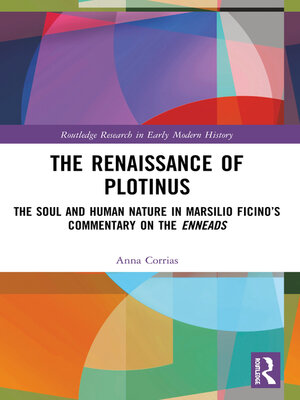The Renaissance of Plotinus
ebook ∣ The Soul and Human Nature in Marsilio Ficino's Commentary on the Enneads · Routledge Research in Early Modern History
By Anna Corrias

Sign up to save your library
With an OverDrive account, you can save your favorite libraries for at-a-glance information about availability. Find out more about OverDrive accounts.
Find this title in Libby, the library reading app by OverDrive.



Search for a digital library with this title
Title found at these libraries:
| Library Name | Distance |
|---|---|
| Loading... |
Plotinus (204/5–270 C.E.) is a central figure in the history of Western philosophy. However, during the Middle Ages he was almost unknown. None of the treatises constituting his Enneads were translated, and ancient translations were lost. Although scholars had indirect access to his philosophy through the works of Proclus, St. Augustine, and Macrobius, among others, it was not until 1492 with the publication of the first Latin translation of the Enneads by the humanist philosopher Marsilio Ficino (1433–1499) that Plotinus was reborn to the Western world.
Ficino's translation was accompanied by a long commentary in which he examined the close relationship between metaphysics and anthropology that informed Plotinus's philosophy. Focusing on Ficino's interpretation of Plotinus's view of the soul and of human nature, this book excavates a fundamental chapter in the history of Platonic scholarship, one which was to inform later readings of the Enneads up until the nineteenth century. It will appeal to scholars and students interested in the history of Western philosophy, intellectual history, and book history.







